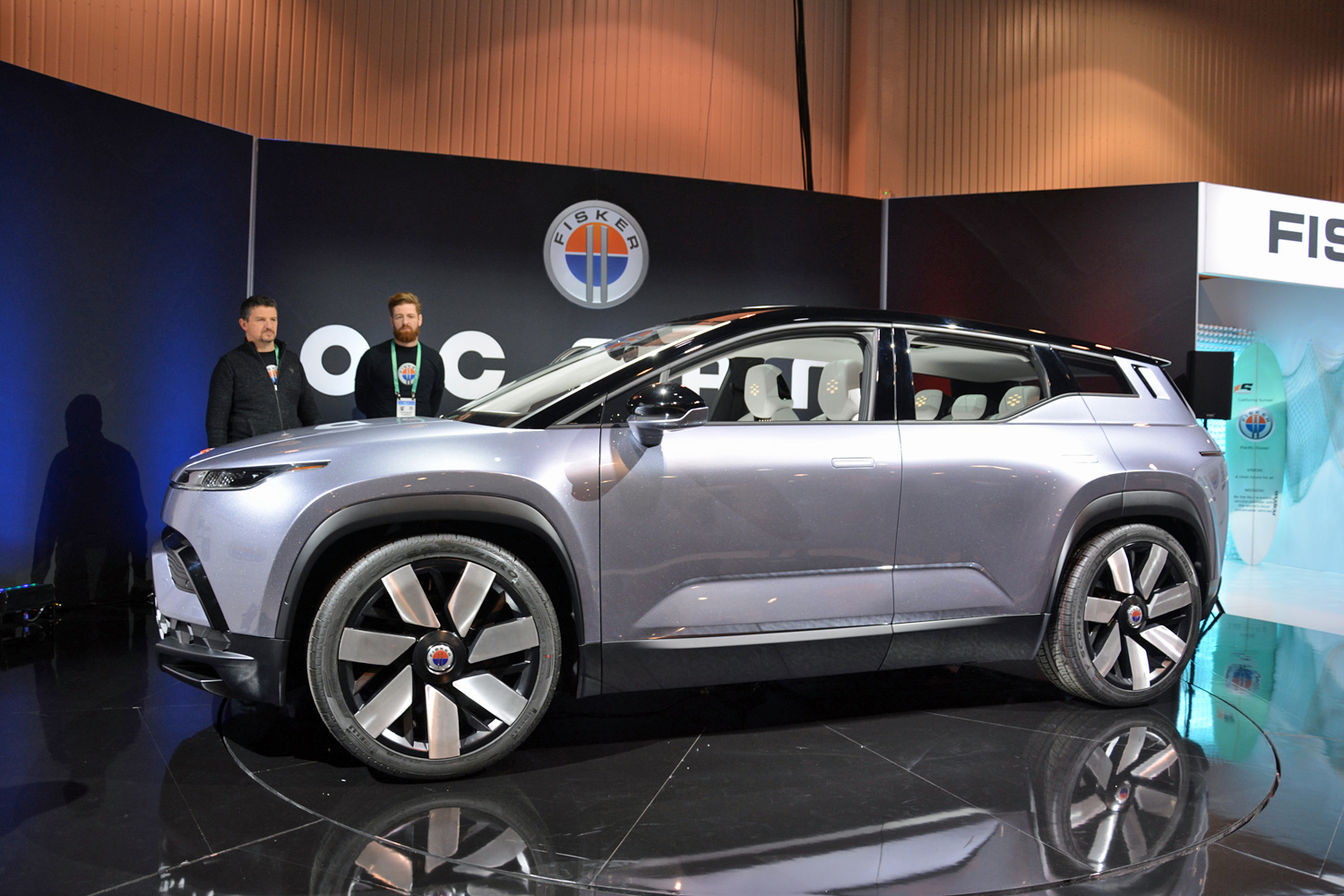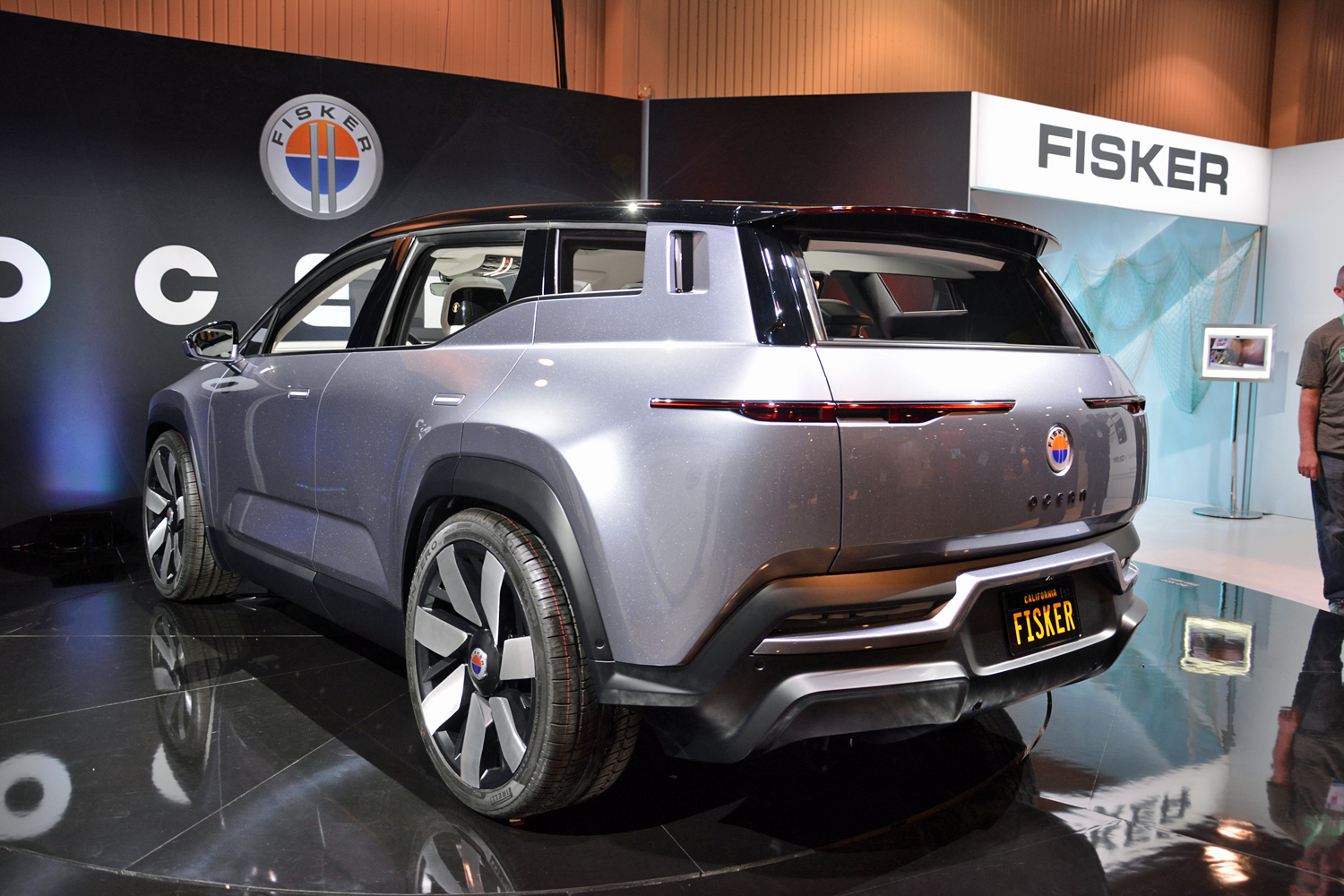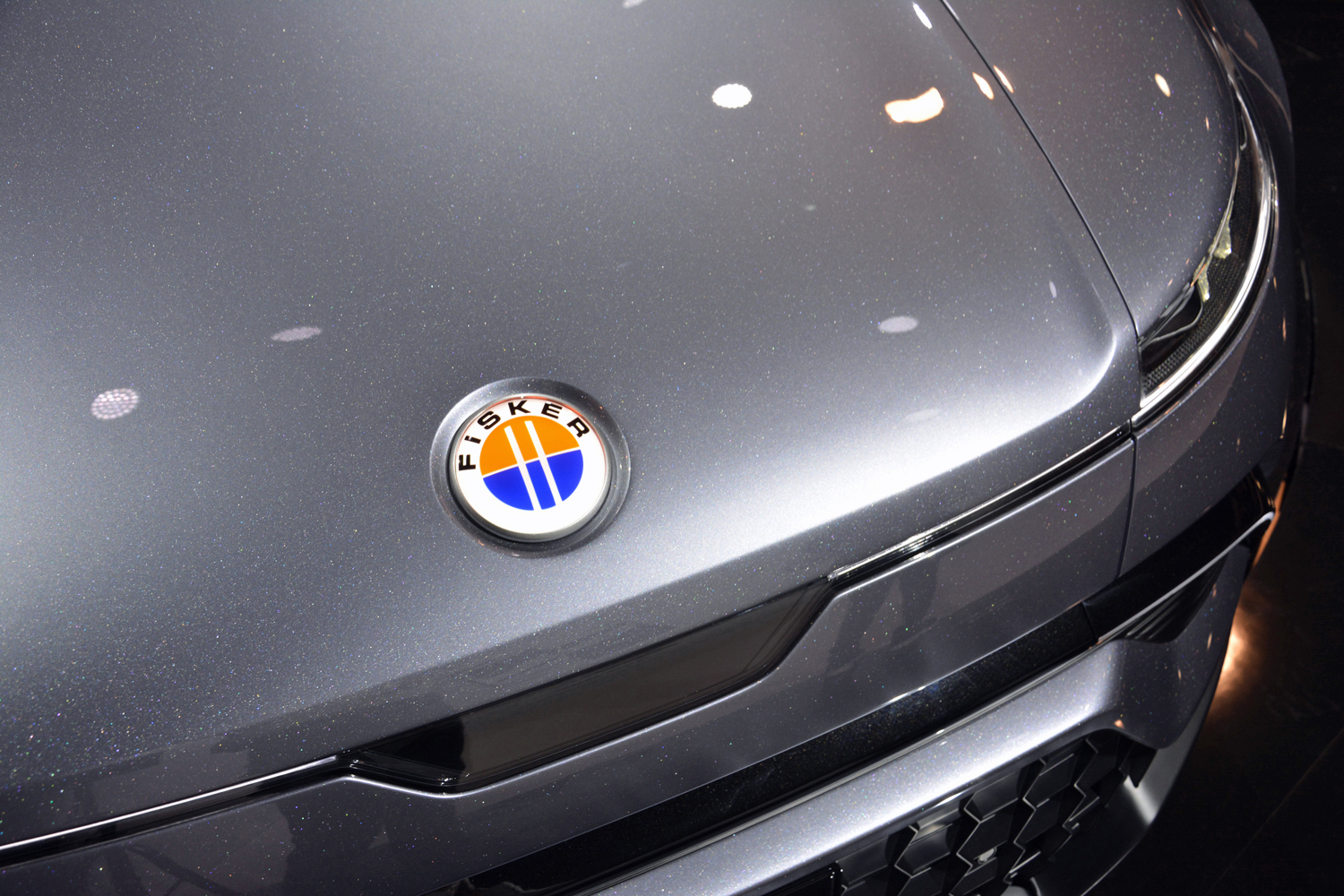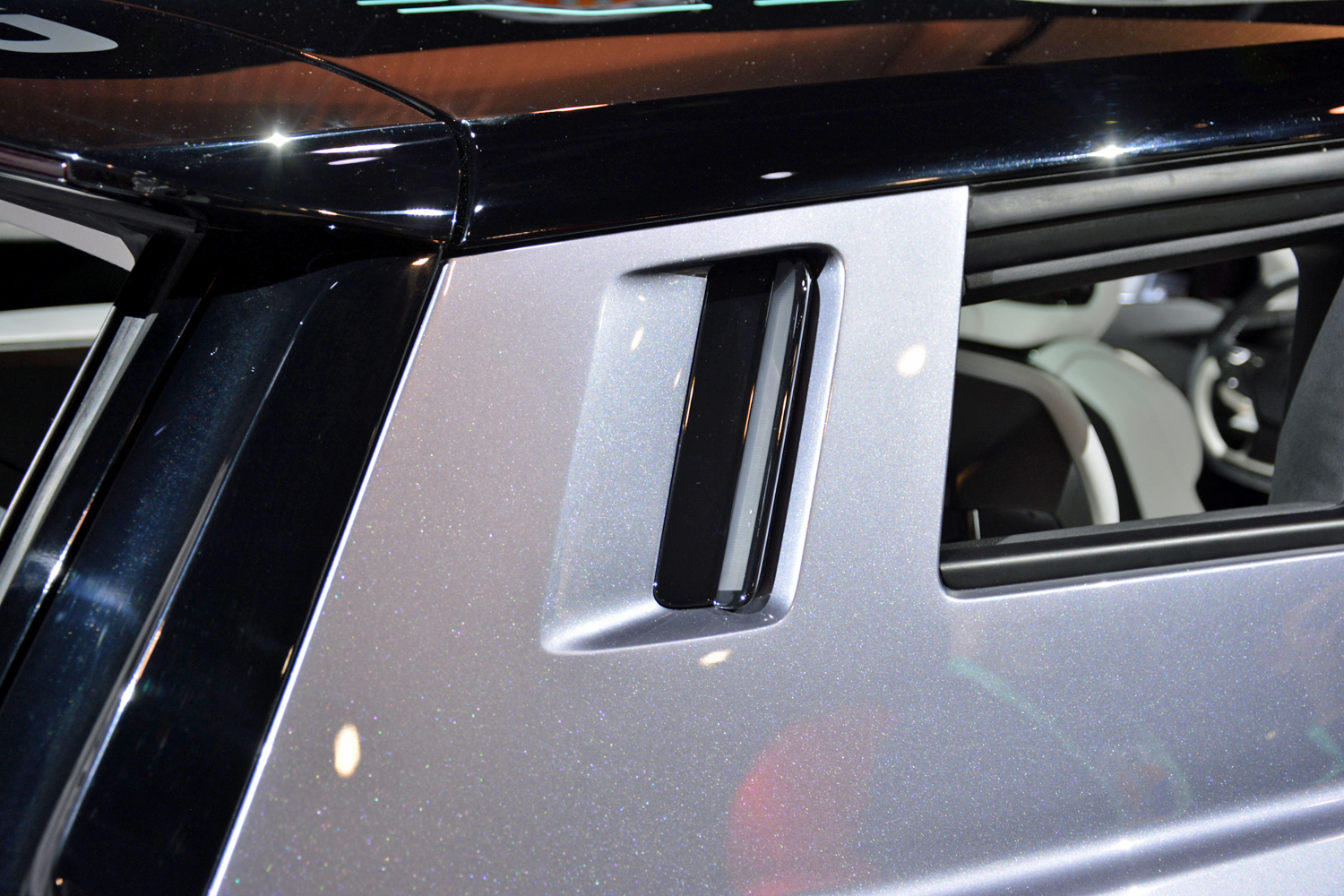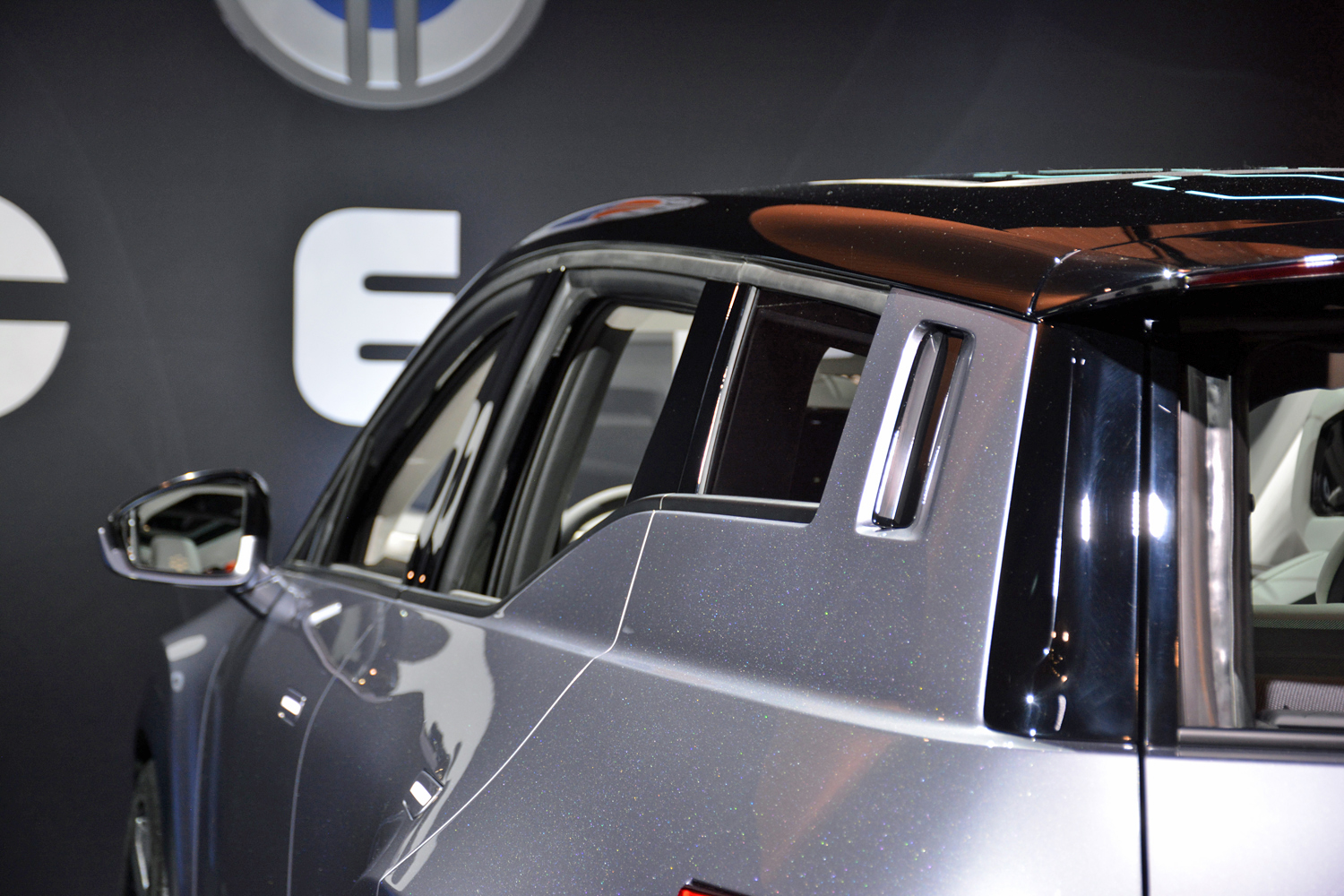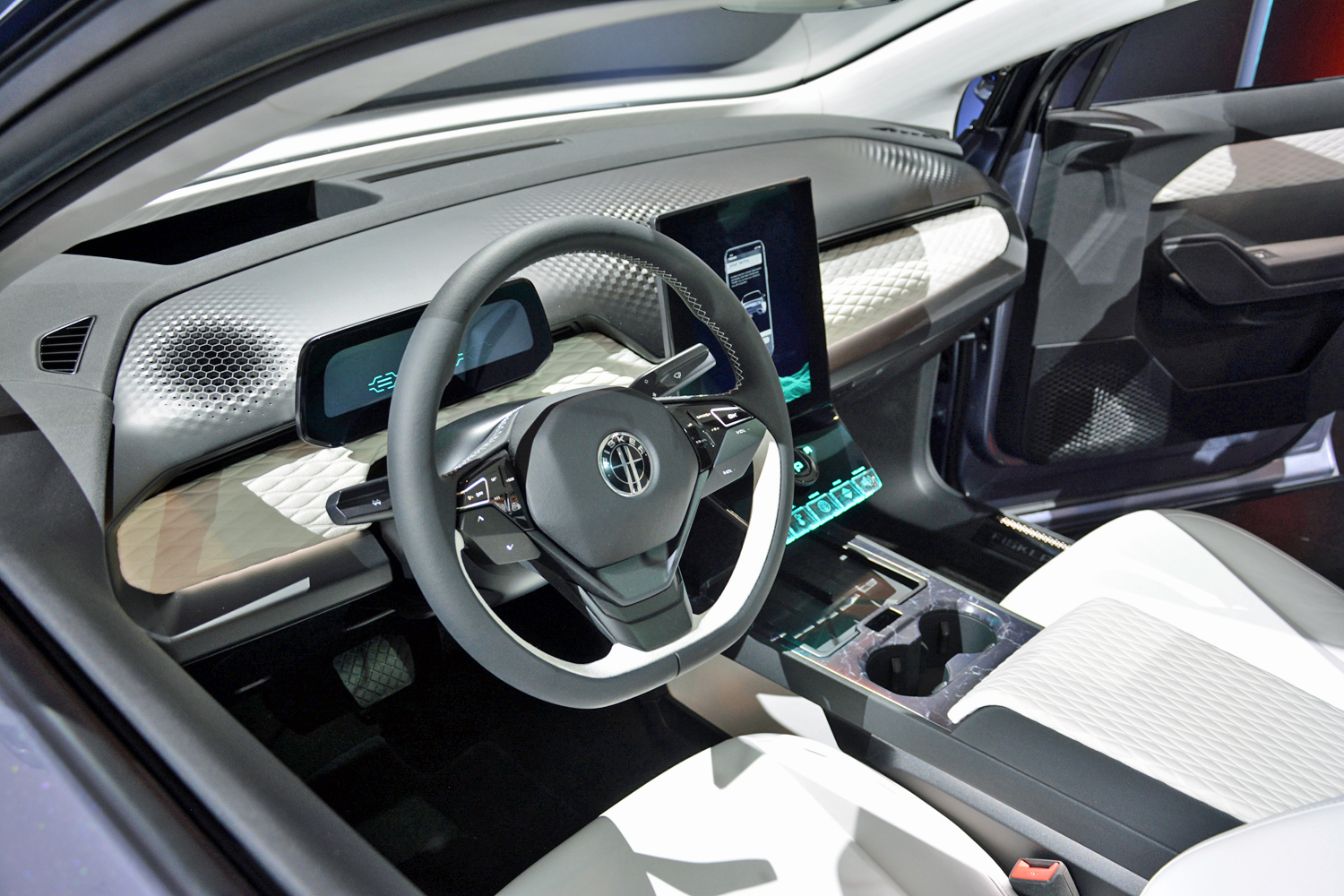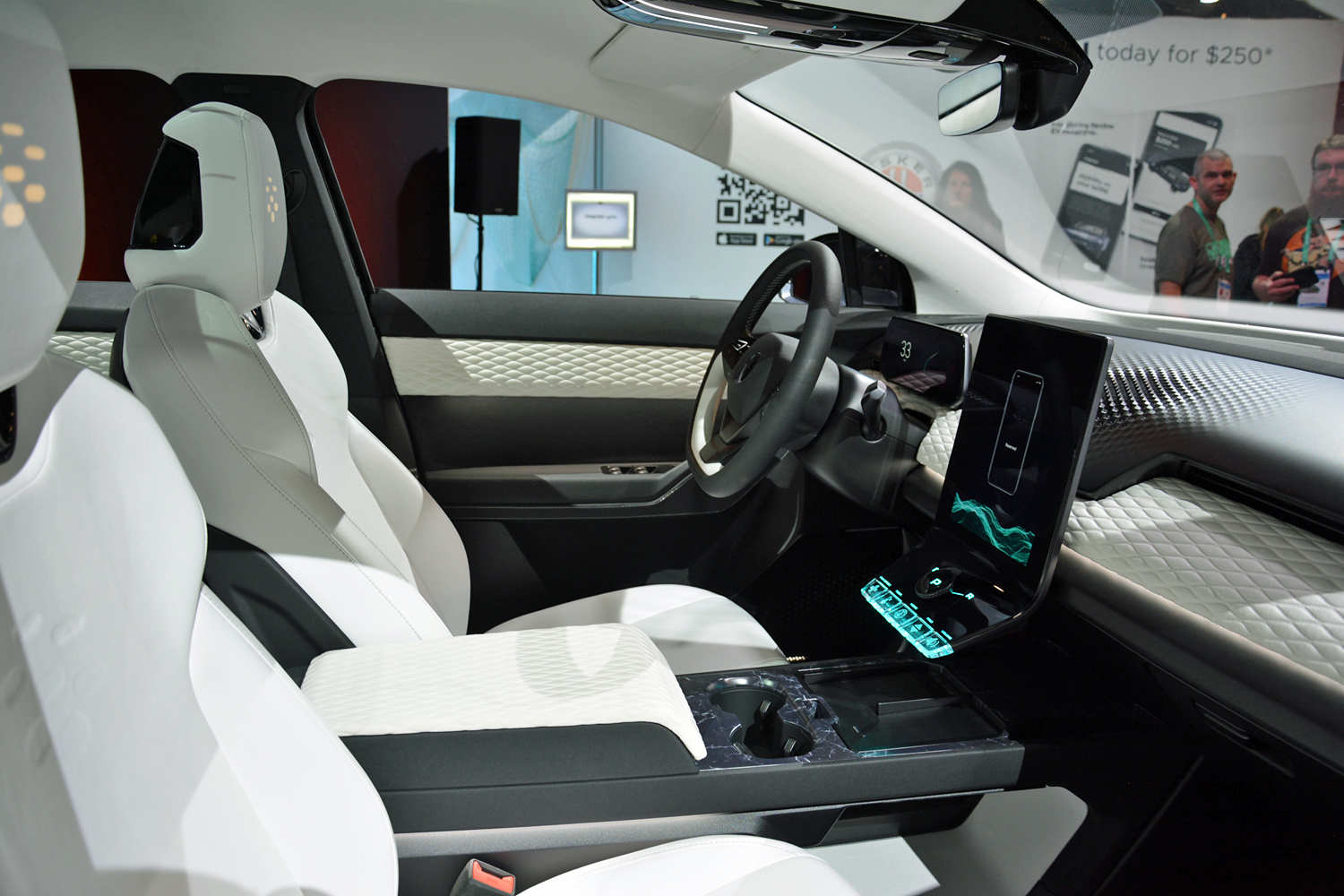This story is part of our continuing coverage of CES 2020, including tech and gadgets from the show floor.
After numerous teases and one delay, the Fisker Ocean electric SUV finally made its public debut at CES 2020. Fisker promises a range of up to 300 miles, as well as a novel app-based leasing program. However, the vehicle Fisker brings to CES will be a close-to-production prototype, as production isn’t scheduled to start until 2021.
In a press release announcing the Ocean’s CES 2020 debut, Fisker also revealed some new details about the electric SUV. Instead of building its own charging stations, Fisker will rely on the Electrify America network. Electrify America was created to spend $2 billion in Volkswagen diesel-emissions cheating penalties, but its stations are open to electric cars from all manufacturers. Ford will use Electrify America as the charging network for its upcoming Mustang Mach-E, and startups Lucid Motors and Byton have chosen Electrify America as well.
The Ocean will also have something called “California Mode,” which lowers all windows, as well as the rear hatch glass, at the push of a button. Fisker said this will provide a convertible-like experience without an actual folding roof, but it also sounds like a feature from the ill-fated Renault Avantime. California Mode will be standard on all Ocean trim levels except the base model.
Fisker previously said the Ocean will get standard all-wheel drive, with an 80-kilowatt-hour battery pack allowing a range of 250 to 300 miles, depending on driving conditions. A solar roof can add up to 1,000 miles of driving per year, according to Fisker. To keep things as environmentally friendly as possible, the Ocean will use recycled carpeting made from fishing nets, 100-percent vegan upholstery, and a material called “eco-suede” that’s made from waste clothing, plastics, and rubber.
Fisker is currently taking $250 reservations through its website and a dedicated app. When production starts, the Ocean will lease for $379 a month, with a $2,999 down payment. But unlike traditional car leases, Fisker will give customers some flexibility in how long they get to keep the car. Customers will be able to return cars after one month, eight months, 22 months, or “several years,” according to Fisker (with a set 30,000 miles per year). Customers will also be able to purchase the Ocean outright at a starting price of $37,499. That puts the Fisker in the same ballpark as the upcoming Tesla Model Y — which has a $39,000 base price.
Fisker is displaying a production-ready prototype at CES 2020. It runs, it drives, and it’s very close to the model customers will begin taking deliveries of at the end of 2021. Company founder Henrik Fisker told Digital Trends the Ocean’s first year of production is completely sold out. If you reserve one now, you’ll need to wait until 2022 to take delivery.
Follow our live blog for more CES news and announcements.
Updated on January 8, 2020: Added live photos, details about production plans.

